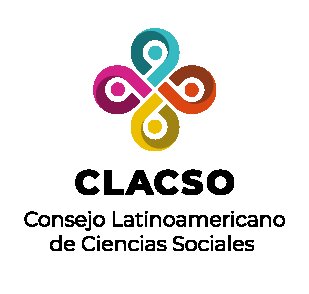Authors
Abstract
Abstract:This article is the result of the research entitled “Association between the ‘Cognitive competences development’ course and the performance on some cognitive abilities in the undergraduate education basic cycle students at Universidad de Caldas, 2008”. Its main purpose is to determine whether the implementation of such course contributes to the increase in attention, memory, language and executive function abilities in the undergraduate education basic cycle. To determine the existence of real differences between the evaluated groups (experimental and control groups) tests for the difference of two non-independent media (paired observations), as well as independent media comparison, were used. Among the main findings it can be highlighted that, even though the specialized literature reports the relationship existent between cognitive training and performance qualification in different cognitive abilities from the participation of individuals in different cognitive and meta-cognitive spaces and training sessions (Portellano, 2005,) this study couldn’t achieve the verification of this hypothesis. On the contrary, the coincidence with Ardila’s (2001) approach which considers that the cognitive and academic performance is the result of multiple variables, not only cognitive ones, and not only dependent on training, were evident since they are considered also as essential aspects in the cognitive performance of university students. Variables such as the type of undergraduate studies, family background, academic behavior and level of motivation shown by the students, play an important role in the development of cognitive abilities (Ardila, 2001.)
References
Carbonell, R. (2007). Aprender a aprender. España: Editorial EDAF.
Castelló, A. (2001). Inteligencia. Una visión multidisciplinaria. Barcelona: Editorial Masson.
Daniel, W.W. (2002). Bioestadística. Base para el análisis de las ciencias de la salud. México: Editorial Limusa.
Díaz, A. (1999). Diseño estadístico de experimentos. Colombia: Editorial Universidad de Antioquia.
De Zubiría, J. (1997). La teoría de la modificabilidad cognitiva y el programa de enriquecimiento instrumental. Bogotá: Fundación Alberto Merani.
Gallego, J. (1997). Las estrategias cognitivas en el aula. Programa de intervención Psicopedagógica. Madrid: Editorial Escuela Española.
García, N. & Yuste, C. (1988). Naipes G. Manual: Niveles elemental, medio y superior. España: TEA Ediciones.
Gutiérrez-Pulido, H. & De La Vara-Salazar, R. (2004). Análisis y diseño de experimentos. México: Ediciones Culturales, S.A de C.V.
Hernández Sampieri, R.; Fernández Collado, C. & Baptista Lucio, P. (1999). Metodología de la investigación. 2da. Edición. Colombia: Editorial Nomos S.A.
Luria, A. (1979). El cerebro en Acción. Barcelona: Editorial Martínez Roca.
Martínez, M. (1997). El Paradigma Emergente. México: Editorial Trillas.
Montgomery, D.C. (2002). Diseño estadístico de experimentos. 2da. Edición. México: Editorial Limusa Wiley.
Montgomery, D.C. & Runger, G.C. (1996). Probabilidad y estadística aplicadas a la ingeniería. México: McGraw-Hill.
Moreno, S. (2003). Módulo de rehabilitación neuropsicológica. Especialización en Neuropsicopedagogía. Manizales: Editorial Universidad de Manizales.
Morgado, J. (2005). “Psicobiología del aprendizaje y la memoria: Fundamentos y avances recientes”. En Rev. Neurol., España, 40(5): 289-297.
Ostrosky, F.; Ardila, A. & Rosselli, M. (1997). Evaluación Neuropsicológica Breve en español. Neuropsi. México: Editorial Universidad Autónoma de México.
Portellano, J. (2005). Cómo desarrollar la inteligencia. Entrenamiento neuropsicológico de la atención y las funciones ejecutivas. Madrid: Somos Editores.
Ritchey, F.J. (2007). Estadística para las ciencias sociales. México: McGraw-Hill.
Sambrano, J. (1997). El cerebro: Manual de su uso. México: Alfadil Editores.
Vigostky, L. (1979). El desarrollo de los procesos psicológicos superiores. Barcelona: Editorial Crítica, Grupo Editorial Grijalbo.

 PDF (Español)
PDF (Español)
 FLIP
FLIP
























